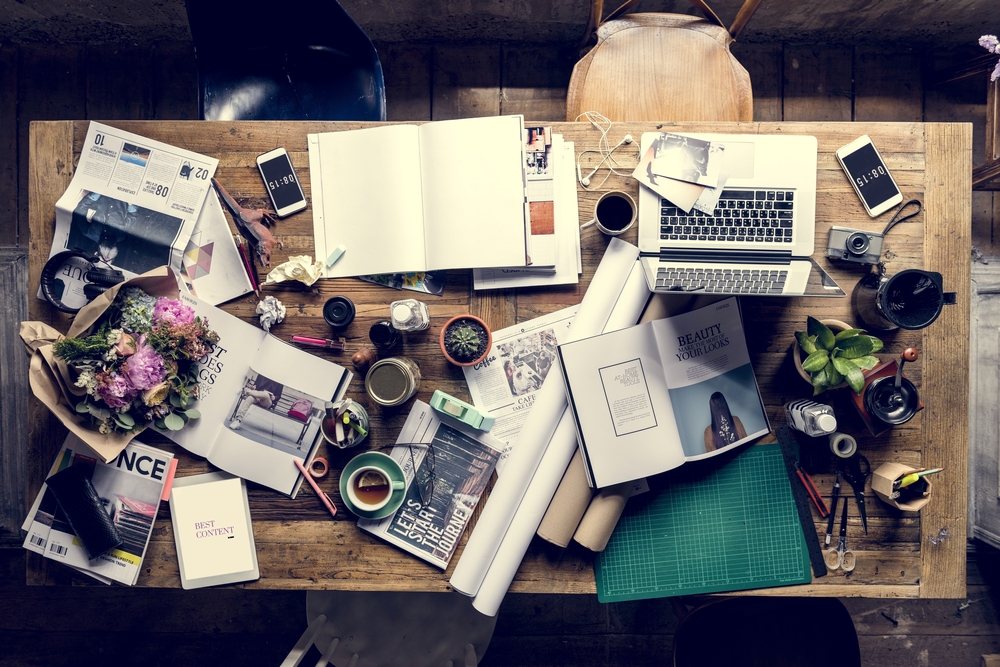
You may think you don’t have time to organise your office, but if you really knew how much time disorder costs you, you’d reconsider. Rearranging and moving piles occasionally doesn’t count, neither does clearing your desk by swiping the mess into a bin or a desk drawer. A relatively neat and orderly office space frees the way for higher productivity and less wasted time.
Follow these tips to help you transform your office into an efficient workspace:
1.Get rid of everything you don’t need. Look around and check for things you haven’t used in a while. Take in one area at a time. If something doesn’t work send it out for repair or toss it. If you haven’t used it in months and can’t think of when you’ll actually need it, out it goes. This goes for furniture, equipment and supplies. Don’t forget about knick-knacks, plants (real or artificial) and décor items, if they’re covered with dust and make your office look shabby, they’re fair game.
2. Put things where they belong. Gather and redistribute by assembling every item that isn’t where it belongs and put it where it does.
3. Position the equipment and supplies that you use most within reach. Things you rarely use can be stored or put away.
4. Put a label on everything. Take the time to label shelves, bins, baskets and drawers. Not only will the markers remind you where things go, but it will also help others who need to find, use, or put away anything in your workspace.
5. Make regular backups. As we move fully into the digital age, the need to store paper files has decreased. If you’re storing files on your computer, make sure you are doing regular backups. Here are some quick tips for creating a smooth filing system:
6. Create a meeting folder. Put all “items to be discussed” in there along with items that need to be handed off and reports that need to be given, for example. It’ll help you be prepared for meetings and save you stress if that a meeting is moved up.
7. Set up a Waiting on Response folder (WOR). So much of our messy papers are things that are on hold until someone else responds or acts. Corral them in a WOR folder. Check it every few days for outstanding actions you may need to follow up on.
8. Clear that desk. Remove everything, clean it thoroughly and put back only those items that are essential for daily use.
9. Organise your desk. Now that you’ve streamlined your work station, it’s a good idea to arrange it. Use desktop organisers or containers to systematise the items on your desk. You can use trays for papers and containers for smaller items.
10. Arrange your drawers. Put items you use together in the same drawer space, for example stamps with envelopes and sticky pads with notepads. Plus it’s a good idea to use drawer organisers for little items like paper clips and tacks. Use a separate drawer for personal items.
11. Clear out those piles. Hopefully with your newly organised office, you won’t create piles of paper anymore, but you still have to sort through the old ones. Go through the stacks (a little at a time if necessary) and put them in an appropriate place or send to the recycle bin.
12. Sort out mail. Don’t just stick mail in a pile to be sorted or rifled through then read the pieces you need at that moment. Sort out your letters as soon as you get them. Do you have to act on them, read them, file them or delegate and hand something over?
13. Archive files. Use inexpensive storage boxes to keep archived records and get them out of your current file space.
14. Use magazine boxes. Use magazine boxes or binders to store publications and catalogues you really want to stock. Please make sure you really need them for reference or research, otherwise recycle them, or give away.
15. Create a reading folder. Designate a file for printed articles and documents you want to read that aren’t urgent.
16. Archive files. When a project is complete, put all of the materials together and file them away. Keep your “working folders” for ventures in progress.
17. Have a fresh start everyday. At the end of the day have a quick tidy up so you have a clean start the next day.
18. File weekly. Don’t let your filing pile up. Put your papers in a “To File” folder and categorise everything once a week.

















